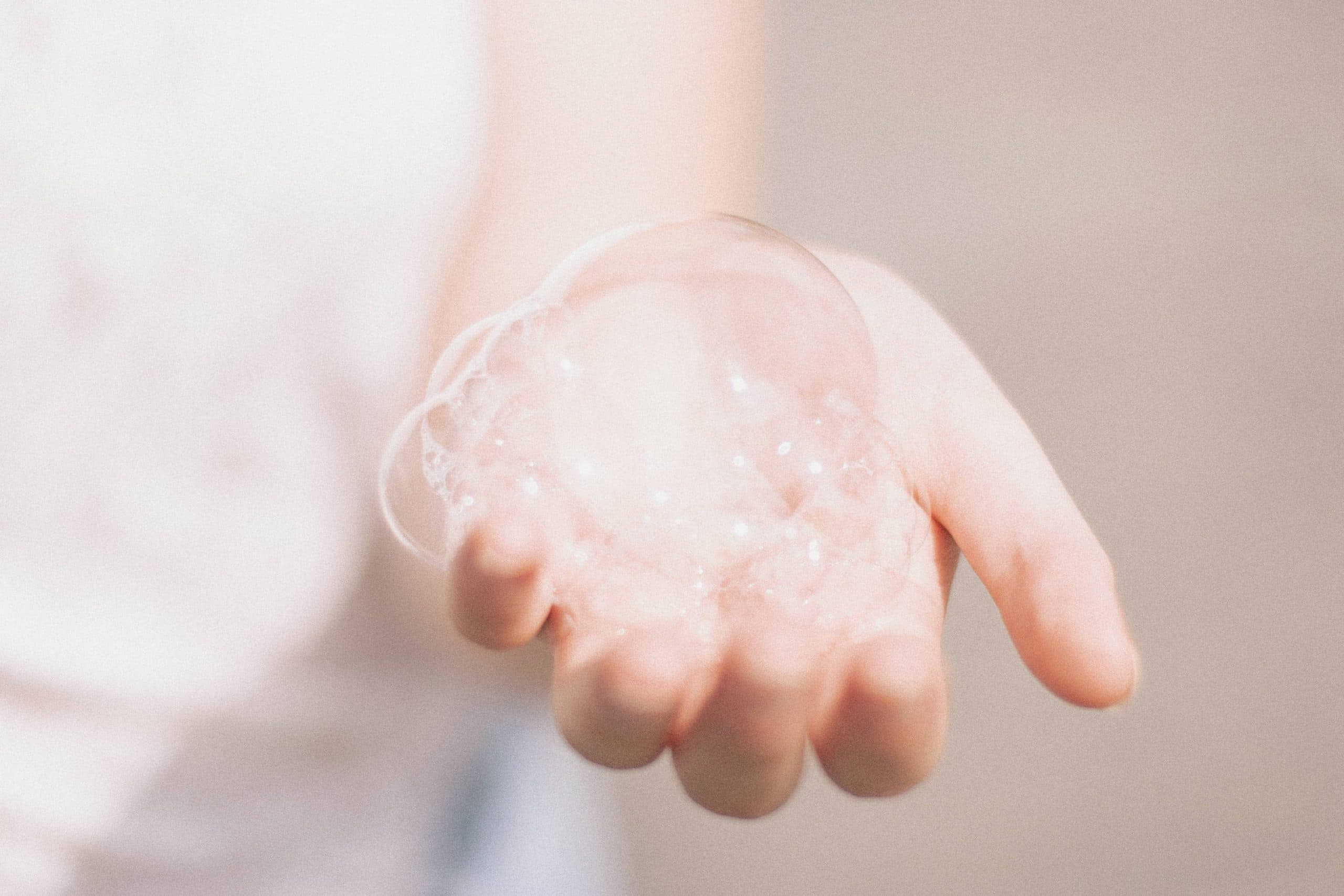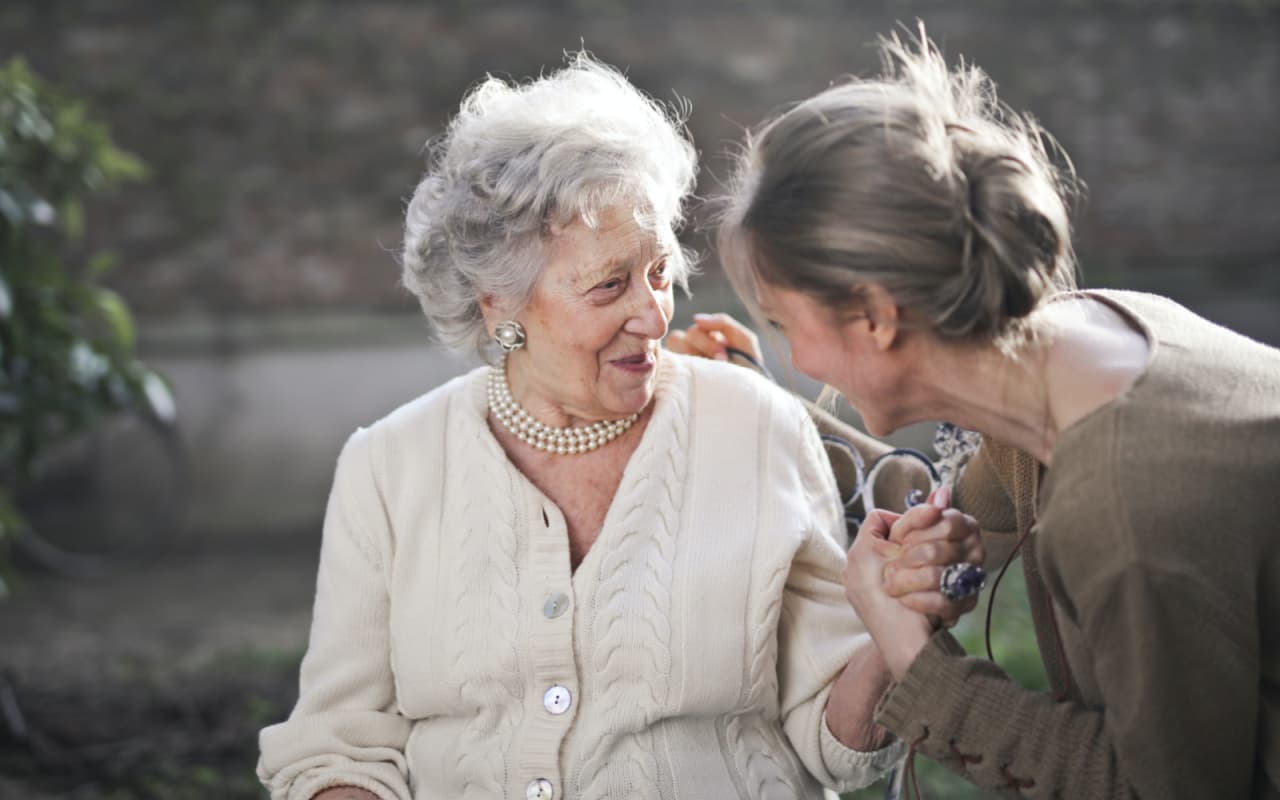6 Things Your Loved One Might Not Tell You About Their Incontinence Issues

Written by Chad Birt on Thu Jun 10 2021.

Many people find it difficult to talk about incontinence issues, even if their family knows they’re struggling. Discussing side effects like adult diaper rash, skin irritation, or strong odors takes courage and a willingness to be vulnerable.
Unfortunately, many people who suffer from incontinence do so silently. Instead of admitting there’s a problem and asking for help, they deny the issue or find ways to privately cope.
At Carewell, we’re passionate about removing the stigma around incontinence. Part of our mission involves educating others on the sensitive struggles that incontinent individuals face.
In this article, we’ve compiled a list of six things your loved one might not tell you about their incontinence issues. By the time you’re finished reading, you’ll have increased insight as well as tools to improve your loved one’s quality of life.
1) Challenge: Incontinence products can irritate the skin.
Incontinence products like adult diapers and pull-ups prevent bowel and urine voids from soiling clothing and bedding. These items reduce the risk of leaks and overflow accidents, but they also trap the gases and chemicals found in urine and stool. Without frequent changes and proper hygiene, the risk of adult diaper rash, skin irritation, and fungal infections significantly increases.
Solution: Skin-related issues are a common side-effect of incontinence products, but they’re easy to prevent. If your loved one is mobile and able to change themselves, encourage them to thoroughly clean their genitals, perineum, and bottom with a warm washcloth and soap or an antibacterial wipe after each void. If they have sensitive skin, have them apply a moisture-resistant powder or ointment as well, to reduce the buildup of fungi and bacteria. If they’re immobile, you will need to help them with cleaning and product application.
It can also help to make sure your loved one is in the correct size. If they’re experiencing itchiness or redness as the result of a product that’s too tight, sizing up can help treat and prevent skin discomfort.
2) Challenge: Researching specialty products isn’t easy.
Many care recipients rely on family members or professional caretakers to handle their grocery shopping, wardrobe, and other basic needs. As a result, they’re not always familiar with the wide range of incontinence products currently available.
Instead of asking about undergarments that are more discreet or waterproof, they assume the diapers or pull-ups they regularly wear are the only option. This hesitancy to speak up may prevent them from enjoying activities with their friends or grandchildren, like swimming at a local pool or visiting the beach.
Solution: Encourage your loved one to speak up. If they’re unsatisfied with the incontinence products they use and want to explore other options, take action. Order several different types and have your loved one wear them for a few days or a week. It may take some trial and error, but you’re bound to find a material, style, and fit that meets your loved one’s needs.
One last note here—our Caregiving Specialists are trained to help you find exactly what you need. If your loved one doesn’t feel comfortable speaking to you about their products, they can always call us directly at (800)-696-2273 and we’d be happy to find them a better solution.
3) Challenge: Odors, leaks, or overflow can cause feelings of shame and anxiety.
Bowel and urine incontinence affects everyone differently. For some people, the voids are relatively predictable; for others, they occur infrequently or with little warning. Though completely normal, the shame associated with leaks and odors causes many with incontinence to limit their social interactions and stay home. This isolation often results in more serious mental health issues, including anxiety and depression.
Solution: Remind your loved one that odors and leaks are normal side effects of incontinence. If your loved one doesn’t feel comfortable talking with you, encourage them to visit their primary care physician or a mental health counselor. Getting these feelings out in the open can normalize the situation and provide a sense of empowerment. What’s more, many tab-style diapers and adult pull-ups contain odor-absorbing technology and advanced ventilation. These factors make accidents much harder to detect.
4) Challenge: Incontinence products are often bulky and difficult to mask.
Some people avoid talking about incontinence for fear of having to wear bulky, noisy, or uncomfortable products. Someone who prides themselves on their appearance might assume they’ll have to stop wearing fashionable outfits and replace them with sweat suits or layers upon layers of clothing.
Solution: The majority of modern incontinence products are made of absorbent, cloth-like materials. They mimic the appearance, texture, and feel of traditional boxers, briefs, or panties, but incorporate technology that wicks away moisture and odors, protecting the skin. There are even diapers and pull-ups designed for use under thin or revealing bottoms like skirts, swim trunks, and bathing suits.
5) Challenge: Incontinence causes a loss of privacy and independence.
People with mobility issues often rely on their caretakers for diaper changes or assistance using the toilet. Requiring help for such a basic task can trigger feelings of shame, guilt, and even anger. If you care for a parent, they might also find it challenging to surrender their role as a caregiver.
Solution: Everyone needs help from time to time. As we get older, our bodies change as part of the natural aging process. Remind your loved one that you aren’t there to babysit or make them feel bad. Instead, you want to assist and empower them.
6) Challenge: Incontinence requires a change in lifestyle.
Incontinence issues often limit independence. After all, it’s difficult to plan a spontaneous trip if all of your mental energy is spent tracking down the nearest bathroom and making sure you have everything needed for a quick, hassle-free change. Not only that, but your loved one might also have to modify their diet, lose weight, or limit their intake of fluids.
Solution: Let your loved one know how proud you are of their commitment to change. To alleviate worries about unexpected accidents, always pack a travel bag that includes a clean change of clothing, wipes, and backup incontinence products. You might also want to consider removing diuretic beverages like coffee, tea, or soda from your loved one’s diet.
How can I support a loved one with incontinence?
Now that you know a little bit more about the incontinence issues your loved one faces, show them your love and support.
Heather Hanks, MS, a licensed nutritionist who specializes in the treatment of inflammatory bowel disease, recommends: “Be patient. There will be times when your loved one will hide from you. Let them do this. Don’t force them out of the house when they physically feel unable to do so.”
“If your loved one decides to come out, make it easy for them by letting them choose where to go. Plan an outing with bathrooms that are easily accessible. Pack a change of clothes for them, including a plastic bag to discard soiled items, and personal cleaning wipes. It helps to carry a blanket so that they can sit on it in the car in case of an accident. Blankets also come in handy if your loved one needs to change behind the blanket while you hold it for them.”
Products for managing incontinence issues
Here at Carewell, we carry a variety of products to help manage both urine and bowel incontinence. Some of our best sellers include:
If you have questions about these or other products, contact our friendly Care Team at any time by calling (800) 696-CARE or sending a message to support@carewell.com.
Incontinence issues aren’t always easy to talk about, but they are manageable. By approaching the topic with understanding, you can provide your loved one with the compassion and assistance they need.
Other Articles You May Like

Hygiene, Health, and Incontinence
Living with incontinence can be inconvenient and even embarrassing at times, but it’s important to talk openly about how it affects our health. Even the tiniest of accidents can result in urine becoming trapped against the skin, which can lead to a host of other problems, including irritation and infection. Here are Carewell’s top six tips for staying healthy and comfortable.
Read More >
Carewell’s Essential Checklist for Urinary Incontinence Care
Urinary incontinence affects more than 25 million Americans. To help, we created a free checklist download for urinary incontinence care.
Medically Reviewed by Kiera Powell, R.N.

Chad Birt is a freelance medical writer who resides in Astoria, Oregon. When he isn't behind a keyboard, you can find him hiking, camping, or birdwatching with his wife Ella and their two dogs, Diane and Thoreau.